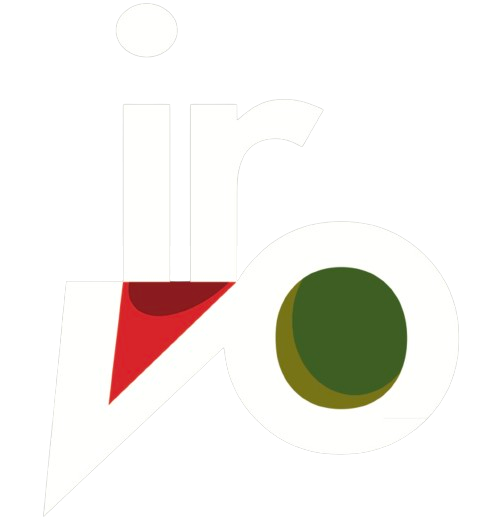17 December 2020
Press release no. 3 of 12/17/2020
On 14 December, the meeting between IRVO and the main institutions dealing with research in Sicily was held online. The meeting had the aim of starting the planning of research and experimentation activities to be carried out in the coming years in the wine and olive oil sectors.
About forty researchers from the following institutions participated in the video conference: the University of Catania with the Department of Agriculture, Food and Environment; the University of Messina with the Department of Biomedical, Dental and Morphological and Functional Imaging Sciences; the University of Palermo with the Department of Agricultural, Food and Forestry Sciences and with the Department of Biological, Chemical and Pharmaceutical Sciences and Technologies; the National Research Council with the Institute of Biosciences and BioResources, the Institute for Biomedical Research and Innovation and the Institute for the Study of Nanostructured Materials.
The role of moderator was played by Dr. Lucio Monte, Head of the Technical-Scientific Area of IRVO. The works were opened by the President of IRVO Dr. Sebastiano Di Bella who, together with the members of the Board of Directors, strongly wanted this meeting, thus inaugurating a working method based on the mutual exchange of experiences with the various subjects who carry out research in Sicily .
Dr. Oliva, microbiologist at IRVO, briefly illustrated the possible sources of European funding capable of ensuring the necessary economic resources and the need, if one wants to obtain them, to initiate research that guarantees environmental sustainability and the turning point towards green and circular economy.
A rich debate followed, started by Prof. Giacomo Dugo (University of Messina) who underlined the importance of research not only in the qualitative characterization of the products of the supply chains, in particular that of oil, but also as a vehicle of communication , as simple as possible, towards consumers. The issues of sustainability were addressed by Prof. Nicola Francesca (Agricultural Microbiology, University of Palermo) who addressed the issues relating to the reduction of adjuvants in alcoholic fermentations and wine stabilization procedures, as well as those relating to the correct production of mature compost active starting from waste materials and production wastewater and those relating to safety on heavy metals and biogenic amines. Prof. Livio Torta (Plant Pathology, University of Palermo) addressed topics relating to alternative formulations to the use of copper in agriculture, the control of mycotoxin-producing fungi, as well as the well-being of plants and the microorganisms capable of improving it. Dr. Francesco Carimi (IBBR-CNR) underlined the importance of the genetic approach in the study of the vine, useful not only in reconstructing the history of the domestication of this plant in Sicily, but also for the restoration of
plants from viruses, in phytosanitary aspects and in traceability. Prof. Pietro Catania (Agricultural Mechanics and Degree Course in Viticulture and Oenology, University of Palermo) strongly underlined the importance, both in the viticultural and olive growing sectors, of precision agriculture, which unfortunately still finds limited application in Sicilian companies, despite its use allowing the reduction of raw material inputs, consequently promoting environmental and economic sustainability. Prof. Massimo Iovino (Agricultural Hydraulics, University of Palermo) recalled the fundamental role of the soil both as a fundamental element in the nutrition of the plant and as a receptor in the process of valorisation of agricultural waste which must be disposed of in order to guarantee its quality, which can be monitored through specific indicators. Dr. Mario Pagliaro (ISMN-CNR) underlined how the shift towards a circular economy, to be achieved through the valorisation of by-products, poses the need to have organic productions that allow us to approach the market of bioproducts for nutraceuticals and pharmaceuticals , and suggested the establishment of consortia of companies for the recovery of by-products, with the possibility of obtaining economic advantages in a short time (18-24 months) from new markets, such as that of biocolours. Prof. Cinzia Caggia (Agricultural Microbiology, University of Catania) took up the issues of valorising the by-products of the olive oil supply chain, reiterating the importance of biotechnology to achieve zero environmental impact. Dr. Agata Giallongo (IRIB-CNR) communicated the expertise of her Institute regarding the characterization of the nutritional and health aspects of bioactive molecules both in vitro and in cancer patients, recalling the possibility of in-depth studies on the effects of derived products, for example example from olive oil, on the progression and invasiveness of tumors in cancer patients. Prof. Antonino Galati (Agricultural Economics, University of Palermo) took up the topics of environmental sustainability and the circular economy, complaining about the poor implementation of information technologies and the need to introduce blockchain technology into Sicilian wineries. Prof. Onofrio Corona (Food Technologies, University of Palermo) recalled the importance of the methods of chemical-physical characterization and sensorial analysis of the products to evaluate the expression of the terroir, underlined the importance of the relic varieties, of the reduction of additives and adjuvants in winemaking processes, also through smart agriculture, of the standardization of product quality through the use of sensors in the controls of transformation processes. Prof. Cristina Restuccia (Agricultural Microbiology, University of Catania) brought her contribution by recalling the selection of yeast strains with the ability to biocontrol numerous phytopathogenic moulds, including Botrytis and Aspergillus, as well as studies on recovery from olive leaves , pruning residues, of substances useful in nutrition such as hydroxytyrosol and hydroxycinnamic acids, through the use of esterases and β-glucosidases produced by yeasts. Prof. Elisabetta Nicolosi (Coltivazioni Arboree, University of Catania) confirmed the importance for companies of the characterization of the germplasm of the ancient Etna vines, also through molecular analyses, of cultivation techniques and research on the soil, of the impact climate changes on native and non-native vines and the use of sensors in determining the harvest date and carrying out treatments to protect the plants from pathogens. Prof. Ezio Peri (Entomology, University of Palermo) has identified four key themes in the promotion of alternative defense strategies, for example through pheromones, in the use of sensors in the field of defense against phytopathogens, in the influence of soil microbes on the defense mechanisms of the plant, in the use of insects, such as the soldier fly, as bioconversion agents of production waste. Prof. Filippo Saiano (Agricultural Chemistry, University of Palermo) underlined the importance of the inorganic fraction of the
soil both in supply chain traceability and food safety. Prof. Vito Armando Laudicina (Agricultural Chemistry, University of Palermo) reiterated the importance of the soil, with particular reference to its biological component, with microorganisms that activate its cycles and which can act as indicators of its state, and the possibility of studies on composting and the use of waste water from citrus fruit processing in agriculture. Prof. Giuseppe Avellone (Food Chemistry, University of Palermo) drew attention to the aromatic component of the products, as well as to the presence of mycotoxins, and underlined the need for researchers to learn the real needs of companies. Finally, Prof. Maria Gabriella Barbagallo (Coltivazioni Arboree, University of Palermo) drew attention to the climate changes that produce an earlier ripening of the grapes, an increase in the alcohol content of the wines and a depletion of their aromatic component and recalled the the need to modify cultivation techniques to maintain the good quality of the product, the importance of further studies on native vines including minor ones, and the need to collaborate with nurserymen to provide winemakers with healthy clonal material free from viruses.
All those present expressed appreciation for the initiative and expressed their willingness to initiate collaborative relationships for the definition of future research projects to be carried out jointly with a multidisciplinary approach.
It is IRVO's intention to proceed with the identification of a few major issues on which to start further meetings at the beginning of 2021.
Links to the full video of the conference
Ultime notizie
News 15 April 2024
List of technological solutions adopted by SAs for the automation of their activities
At present, IRVO has not envisaged automation of activities; the P purchasing portal is used to manage the life cycle of contracts.

